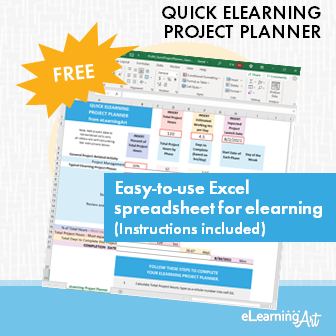
You might consider studying a master of education (early childhood) if you wish to be a teacher or want to specialize in early childhood development. The program will provide you with a wide knowledge of the ages and developmental stages of young children as well as different teaching methods. You will also learn about play theory and the role of the family in early childhood development. The following paragraphs will provide some basic information about the graduate program.
EdS degree
If you are interested, an online Master of Education in early childhood education program could be for you. These courses cover learning theory as well as elementary curriculum methods and foundations for education. The courses will cover early childhood literacy and language development. Online courses in early childhood education can also be offered online. They will cover topics such as leadership worldviews, current issues, and family literacy. This degree program could be beneficial to parents who want their child to have better educational opportunities and a better quality of family life.
Candidates should know the licensing requirements of their chosen program. They also need to have a teaching certificate. In some states, applicants must have several years of experience teaching children from birth to age eight. If you have any teaching experience below this age, it is important to update your resume. Applicants should also be aware that different programs may require different information in their essays. Some may require answers to specific questions, while others might just be interested in what you plan to do with your degree.

Online programs
There are many degree programs online, including the Master of Education In Early Childhood Education. The popularity of master's programs in early education is increasing. These programs will equip you with the skills and knowledge necessary to become a successful teacher or administrator. The online education programs offered by universities provide flexibility in studying and earning a degree. The degree can be completed at their own pace and from their homes. The following are examples of Master of Education programs in early childhood.
University of Toledo has an online Master of Arts Program in Early Childhood Education. It takes 36 credit hours, and the program's price is very competitive. The curriculum can be broken down into three sections: the foundational core and early childhood-specific courses. Finally, there is a culminating activity like a thesis or project. Students enrolled in an online University of Toledo program will receive 36 credit hours. They also pay $12,000.
Curriculum
The first step in pursuing an advanced degree is choosing a program. While many programs have similar requirements, they can differ greatly in the coursework they require. Courses that are required for graduate programs in early child education could include educational psychology, developmental linguistics, multicultural education, and child development. These courses can also be taken online so students can work at their own pace. To learn more about this program, check out our course list below.
While online schools can offer a variety of courses, most have a set schedule with a fixed tuition fee. Online programs can take between two and three years, although some are shorter. Some programs lead directly to teacher certification. Others may allow for additional endorsements to be granted to licensed teachers. You may also consider pursuing positions in government agencies, schools, and non-profit organizations.

Requirements
A master's program in early childhood education usually requires at least 30 credits. It takes approximately two years to complete. You may be able complete your degree in as little time as one year if you enroll in an online accelerated program. Initial teacher certification programs may require 48 credits and require student teaching and fieldwork. You can also choose an additional endorsement such trauma studies. This will help you understand behavior issues related to childhood trauma. Graduates may also pursue roles in government agencies, nonprofit organizations, and schools.
A Master of Arts in Teaching Young Children is offered by Teachers College, Columbia University. This curriculum prepares you for critical issues in early child education. You can choose between a full-time or part time option depending on how much time you have available. Part-time students typically finish the program in one year, while a full-time student might spend two years. In either case, the program is designed as a cohort model.
FAQ
What is electronic learning?
E-learning offers an online learning platform for individuals, businesses, and institutions. It's a method of transmitting information and instruction via electronic media, such as computers and mobile devices.
This type of learning uses technology to deliver information rather than physical materials.
E-learning does not have to be done in a traditional classroom setting. It can also be done at home, on the move, or anywhere else that has internet access.
What's the value of elearning?
E-learning allows learners to engage in learning activities at any time and from anywhere. It allows them to learn anytime they want and wherever they are.
E-Learning allows the learner to communicate with other learners who share similar interests. This interaction enhances communication skills and knowledge sharing.
The use of technology facilitates the transfer of information between the teacher and the student. The technology used should be robust enough to support the delivery of high-quality content.
E-learning can help reduce costs by reducing the need for travel for training purposes.
It saves time and money by allowing the learner to complete their coursework while working or traveling.
What are the biggest obstacles that prevent e-learning from being a success?
The primary challenge of e-Learning isn't technical, but cultural. It's all about people.
Understanding what motivates and how they learn best is key. It is also important to understand what motivates them and how they feel about learning online.
This is why we must find ways that make the experience as natural as humanly possible.
Statistics
- According to ATD's 2021 State of the Industry report, technology-based learning methods, including e-learning, accounted for 80 percent of learning hours used in 2020. (td.org)
- Reliability, validity, and descriptive statistics (The Gambia). Empty CellCRAVEMeanSDACBICOEEHABHEHMPEPOPVSESITRAC0.770.635.080.842) in behavioral intention to use e-learning in The Gambia (53%) and the UK (52%), (sciencedirect.com)
- Hedonism incorporates intrinsic motivation, including novelty, challenge, excitement, and pleasure (Schwartz et al., 2012), which is likely to predict user perception of e-learning enjoyment. (sciencedirect.com)
- In the 2017 ATD research report Next-Generation E-Learning, 89% of those surveyed said that changes in e-learning require their staff to update or add new skills. (td.org)
External Links
How To
What has changed about e-learning since its inception?
In the 1980s were created the first elearning courses. They were developed to teach adults new computer skills. E-learning is now much more advanced. Today, there is a wide variety of eLearning options. Some of these include:
-
Computer-Based Training (CBT) - CBT is usually short and involves using computers to deliver information.
-
On-Demand training (ODT): ODT is similar and only offered when required.
-
Self Study - This type of e-learning allows people to do their own research and not need any help.
-
Web-Based Training (WBT) - WBT is a type of eLearning which involves students completing their studies online. While the tutor cannot see the students' activities, he can monitor their progress through the system.
-
Video Lectures - A video lecture is a recorded presentation that can be viewed on screen or television.
-
Online Tutorials - These are web pages that offer step-by-step instructions for performing certain tasks.
-
Interactive Whiteboard: An interactive whiteboard allows users to interact directly on the board's image by touching sensitive areas.
-
Simulations - Computer-based games that allow role-playing. Students will be able to act out possible scenarios during their job.
-
Games - Computer-based games that help you solve problems.
-
Collaborative Learning – Collaborative learning encourages students to work together.
-
Problem Solving: This is a type e-learning which aims to help students develop critical thinking skills.
-
Virtual Environments: A 3D representation of real objects in a virtual environment. This would be a 3-D model of a building.
-
Social Networking - Social networking is a way of communicating with others via the internet.
-
Mobile Learning – This is a type eLearning that can be done from anywhere, even while you are traveling.